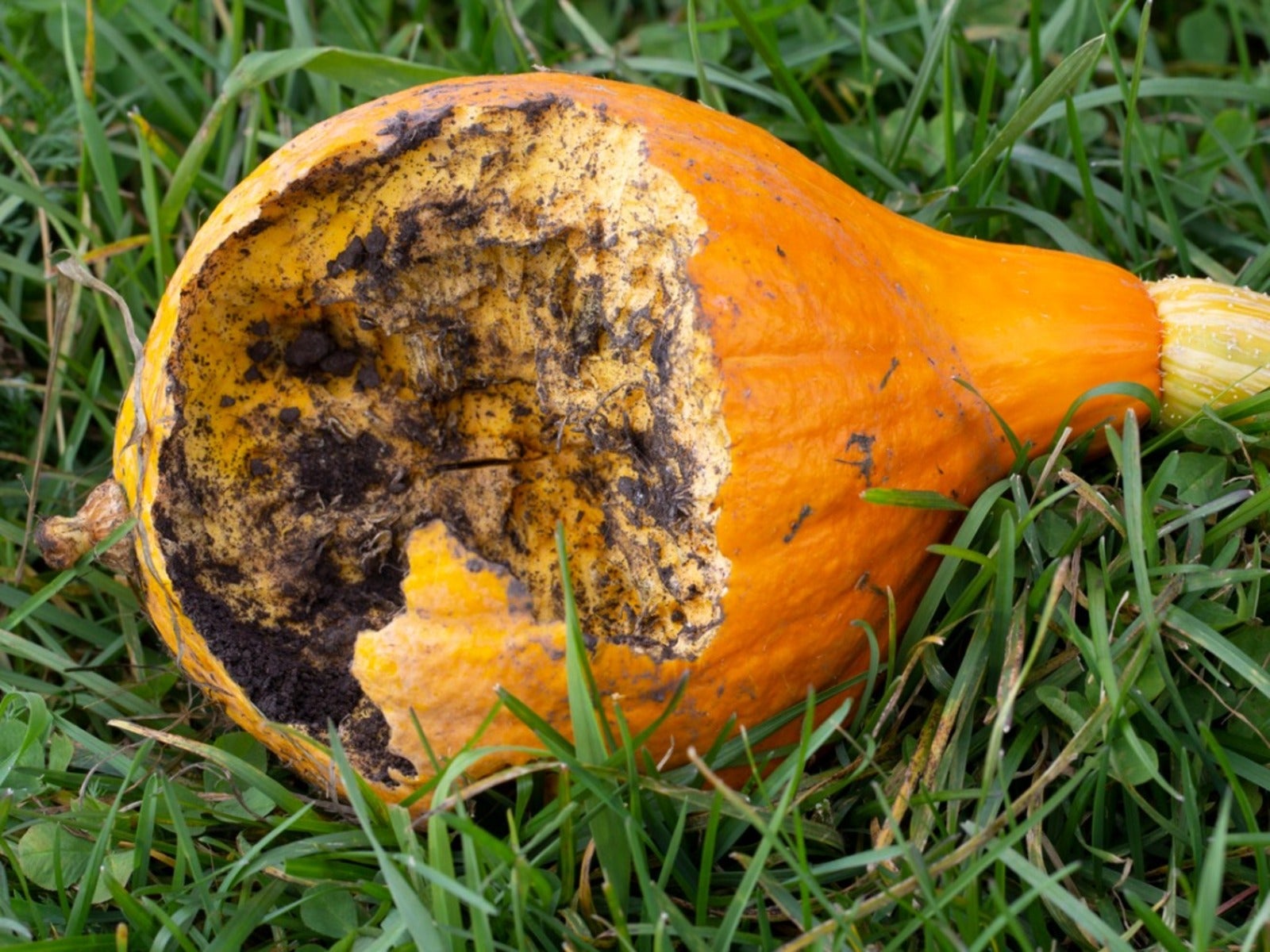What’s Eating My Squash? How To Protect Squash Plants


As humans, we are omnivorous and eat a host of foods. And our furry and feathered friends seem to enjoy a similar diverse diet. It is not unusual to check the vegetable patch and find some gnaw marks in our food, especially squash. What animals eat squash? The answer is as varied as our wildlife.
Identifying Insect and Animal Foraging on Squash
The signs are unmistakable. Scratch marks, strangely shaped bites, and even tunneling in our squash. In the plant itself, often the leaves are skeletonized or simply completely gone. Something other than the gardener has been enjoying the fruits of their labor.
In the early days of a plant’s growth, it is common to find seedlings entirely cut off, the likely work of cutworms, but as the plant matures the fruit is also often attacked by larger consumers. While it is a classic joke that a zucchini plant can feed hundreds, we really don’t plant our food crops to share with animals and insects. In order to keep the harvest for ourselves, we need to recognize what animals eat squash plants and how to control the invaders.
What Animals Eat Squash?
When you head out to your garden plot to harvest some tender young squash for dinner, and the evidence is clear, you may be wondering, “what is eating my squash fruit?” Insects are often the initial pests that denude a plant of leaves and may even eat the roots of seedlings.
Figuring out who is the culprit starts with looking for clues. Is there tunneling present? It could be rats, woodchucks, shrews, voles, moles, or other animals who dig routes underground. If the lowest leaves are lost, shorter animals like rabbits, raccoons, or skunks may be the culprit. Cute little chipmunks and squirrels are classic offenders and difficult to keep out of the garden due to their agility and speed. Deer don’t enjoy prickly foods, but modern cultivars of spineless squash make the foliage quite inviting. While the gardener is mulling around trying to figure out what’s eating my garden squash, there are also tracks to consider. Deer tracks are large and easily identified by the 2 part curved hooves marking in damp soil.
Finally look to the skies. If you have a large bird population, congratulations, but these feathered animals also enjoy a peck or two of squash fruit. Many animals will find summer squashes particularly delectable due to their moisture content during hot, dry summers.
How to Keep Animals from Eating Squash Plants
After identifying the culprit(s), it’s time to turn your attention to how to keep animals from eating squash plants.
Sign up for the Gardening Know How newsletter today and receive a free copy of our e-book "How to Grow Delicious Tomatoes".
Fencing
Fencing will keep most browsing, larger animals out of the garden plot. It is recommended to erect a fence of at least 6 feet (1.8 m) in height to keep deer and similar pests out of the veggie garden.
Repellents
Natural repellents can dissuade certain animals. Heavily scented items like garlic, onions, mustard, and even rotten eggs can keep certain animals from eating plants. Spraying tasty leaves with a dissolved mix or hot pepper or cinnamon is also effective in some cases. Products such as predator urine will send the animals scurrying away in fear.
Caging
Cages and bird netting are simple ways to cover the plants and prevent animals such as rabbits and birds.
Clearing the Area
A great tip is to remove other attractive elements on the property. Ensure garbage cans are lidded, remove bird feeders and water sources, do not leave pet food outside, and clean up debris areas that might be nesting or cover areas.
Can You Eat Squash Fruit That Has Been Nibbled Upon?
In most cases, it is not advisable to try to consume fruits that have signs of gnawing. Animals like mice and rats carry many types of disease. Other animals could transfer fecal contamination to the fruits, which would be dangerous to eat. Fecal contamination could introduce bacteria, parasites, and viruses that the human immune system cannot quell easily.
It is the gardener’s choice as to whether they wish to take a chance on eating lightly damaged produce. If so, wash the fruit thoroughly and cut away every vestige of damage. Fruits that are slightly damaged in the end are the best choice for consumption. Fruits that have bites out of the center should be composted. Consider cooking the fruit completely to kill any potential pathogens.

Bonnie Grant is a professional landscaper with a Certification in Urban Gardening. She has been gardening and writing for 15 years. A former professional chef, she has a passion for edible landscaping.